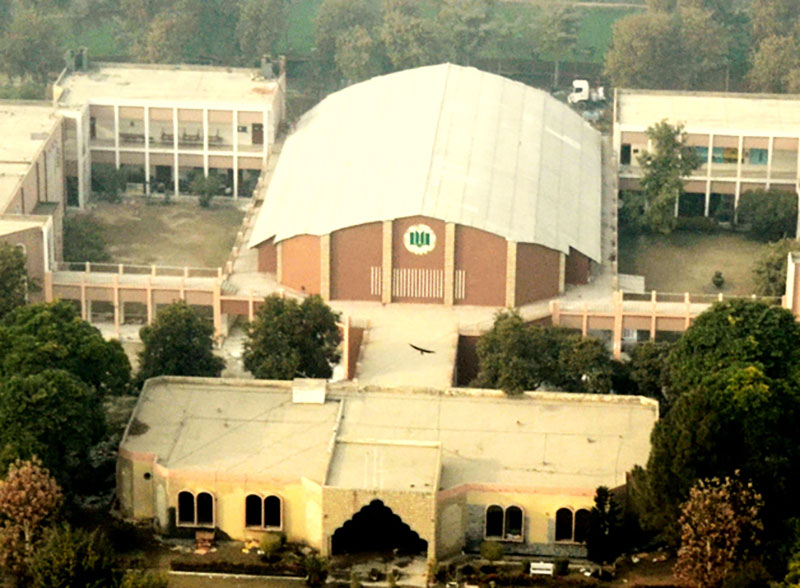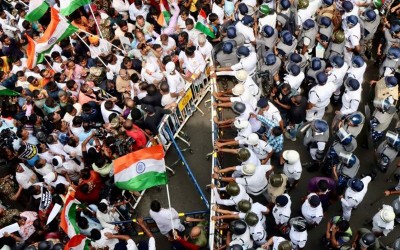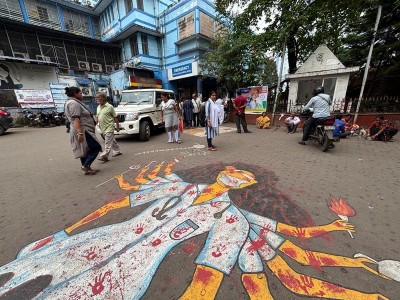 TTP
TTP
16 December: The inauspicious date that the extremism-diffusing military establishment has etched into Pakistan’s history
Islamabad: The two major setbacks that Pakistan suffered on 16 December – first the country’s inglorious dismemberment and the birth of the sovereign Bangladesh in 1971, and then the grisly and repugnant massacre of over 130 children of an Army-run school in Peshawar by the Tehreek-e-Taliban Pakistan (TTP) in 2014 – both trace their roots to the oppressive, intrinsically flawed, and largely self-serving policies pursued by the country’s military.
Through a combination of direct forcible takeovers of power and less direct routes such as the present hybrid regime that it has put in place with the gullible and dictatable Prime Minister Imran Khan, the Army has held sway over Pakistan through most of its existence.
The tools it has used over the years to retain a firm grip over its preeminent position in the country have varied, and have been adapted to the times, but the one thread that has run constant has been the single minded focus on serving and enriching the military establishment, even if that meant the average Pakistani citizen and taxpayer was made to suffer damaging costs in the process.
If, therefore, the loss of more than half of Pakistan’s population and about 15% of its territory in the creation of Bangladesh in 1971 was the result of the Army’s indulgence in inhuman oppression and deprivation of East Pakistanis, the heartless terrorist attack targeting the children in 2014 was the fallout of the military establishment’s conscious policy of the past several decades to actively promote extremism and terrorism as a means to protect and promote its own supremacy.
Religion was the basis on which Pakistan had been carved out by the British at the time of the colonial power’s departure from the Indian subcontinent in 1947. Despite the common religion of Islam, the people of East and West Pakistan, located on either flank of India’s large landmass, were very different from each other in most other aspects. Within a few years of Pakistan’s creation, its ethnic majority Bengalis, who populated East Pakistan, began demanding that the State recognize Bengali as a national language.
Their demands were violently suppressed by the ruling elite in West Pakistan, whose main pillar was the Army.
A sustained policy of cultural, economic, and linguistic oppression of East Pakistan was put in place by the Generals in the West.
Consistent and calibrated efforts to deprive Bengalis of their legitimate share of political power were also made.
The simmering, and occasionally bubbling, discontent of East Pakistanis reached a boil when the ruling regime headed by General Yahya Khan refused to convene Parliament following the 1970 elections in which the East Pakistan-based Awami League, led by Sheikh Mujibur Rahman, decisively defeated Zulfiqar Ali Bhutto’s Pakistan Peoples’ Party (PPP).
Sheikh Mujibur’s ‘Six Point Agenda’, which called for greater federalism, separate convertible currencies, delegated fiscal responsibility, and the right to maintain a separate militia, were deemed to be unpalatable by the political elite of West Pakistan, more so since the winners of the 1970 elections were to be responsible for writing Pakistan’s new constitution.
Hell-bent on preventing this from happening, Bhutto put unjustified obstacles to the convening of Parliament and began baselessly demanding a power-sharing agreement.
When Sheikh Mujibur insisted upon the Awami League’s right to form the government, General Yahya Khan on 25 March 1971 began a ruthless military operation against the Bengalis.
Responding to the launch of Operation Searchlight and the killing of several unarmed students and others, East Pakistan declared independence on 26 March, 1971.
What ensued was carnage by the Pakistani military, and it went about blatantly killing Bengali civilians and supporting arson and rape by pro-Pakistani Islamist militias, prominent among which was the Jamaat-e-Islami (JeI).
Over the next eight months, an estimated 2 million East Pakistanis were killed, hundreds of thousands of girls and women were raped and tortured, and thousands of homes were destroyed.
Out of a total population of 75 million, 30 million East Pakistanis were internally displaced and nearly 10 million rushed to escape by crossing over into India.
Drawn into the conflict, India began supporting the Mukti Bahini, a guerrilla resistance movement formed by East Pakistani freedom fighters.
War between Pakistan and India broke out on 3 December 1971 and concluded on 16 December, when Lieutenant-General Amir Abdullah Khan Niazi, the Commander of the Pakistan Eastern Command, signed the Instrument of Surrender in Dacca, which was accepted by Lieutenant General Jagjit Singh Aurora, the General Officer Commanding-in-Chief of India’s Eastern Command.
Indira Gandhi, the then Prime Minister of India, announced victoriously in the country’s Parliament that “Dhaka is now the free capital of a free country”.
American scholar C. Christine Fair, a respected voice on South Asia, in a 14 December article titled ‘Pakistan lost the 1971 war, but its project of Islamist violence won the larger conflict’ observed that “Pakistan learned the most dangerous lessons of the war. It concluded that repressing and exploiting disgruntled minorities is a viable tool of domestic statecraft while proxy war is an effective tool of foreign policy… In retrospect, while it may have lost that particular battle in December 1971, in many other ways, Pakistan and its project of Islamist violence seem to have won the larger and enduring war”. She added, “Pakistan never suffered any punishment or consequence for the relentless persecution of its Bengali population and indeed learned a very important lesson. Namely, it can continue to violently harass, harangue, oppress and even kill its own domestic critics – often with American weaponry. The world is so numb to Pakistan’s barbarism that it no longer registers significant outcry beyond the limited purview of human rights organisations”.
In a 2013 article titled ‘The growth of Islamism in the Pakistan Army’, the Small Wars Journal had dwelt on the Pakistan Army’s growing obsession with using religion as a tool to further its own cause.
It pointed out that “General Yahya Khan, Ayub Khan’s successor, maintained the policy of using Islam as a means to affect internal issues in favor of consolidating national power under the Army.
Aside from continuing secretly to support Islamist movements against the populist parties, Gen. Yahya Khan unleashed Deobandi mujahedeen against his own citizens in East Pakistan.
He and his generals cited the conflict as a jihad against liberal forces whose aim it was to divide the country.
The result of Pakistan’s slaughter of its own people was Indian interference on behalf of East Pakistan and the creation of Bangladesh”. It added that “the sense of desperation that followed the unproductive 1965 war and the loss of East Pakistan in 1971 caused the Army and mainstream politicians to focus on Islam as the way to solve the nation’s problems”. The article highlighted the subsequent Pakistani dictator General Zia-ul Haq’s “plan to establish a true Islamic system of government”. It averred that “Zia used Islam to affect issues outside the military. However, he also implemented fundamental changes in the Army by introducing Islam into several aspects of the way it operated. This was the first time that Islam had official capacity in the military”.
This misuse of Islam by the Pakistani military establishment for purposes the religion was never intended for was, unfortunately, among the key reasons behind one of the most heart-wrenching and harrowing terrorist attacks in modern times. On 16 December 2014, seven TTP militants attacked an army-run school in Peshawar killing 141 people, 132 of them children. The school, which is located near a military complex, had been targeted in response to a military offensive against the TTP in North Waziristan and the nearby Khyber area in which hundreds of TTP fighters were thought to have died. A TTP spokesman Mohammad Khurasani had said that the militants had been “forced” to launch the attack in response to the army offensive. Commenting on the horrific attack, the then United States (US) President Barack Obama had said that terrorists had “once again shown their depravity”, while United Nations (UN) Secretary General Ban Ki-moon had described it as “an act of horror and rank cowardice”.
Many Pakistanis believed that the choice of target by the TTP was so vile that it called for the Peshawar attack to become a watershed for Pakistan’s dalliances with religious radicals and terrorists of all varieties. As Aamer Ahmed Khan wrote in BBC News shortly after the attack, “This brutal attack may well be a watershed for a country long accused by the world of treating terrorists as strategic assets. Pakistan's policy-makers struggling to come to grips with various shades of militants have often cited a ‘lack of consensus’ and ‘large pockets of sympathy’ for religious militants as a major stumbling-block”. The strength of the public outcry and dismay after the attack did, for a brief while, shake up the military establishment enough for the Army Chief General Raheel Sharif to announce a strong and broad offensive. As Aamer Ahmed Khan described it, “We will get them, was his message, be they Pakistani Taliban, Punjabi Taliban, al-Qaeda and affiliates, or most importantly, the dreaded Haqqani network”. Since Aamer Khan wrote his piece in 2014, much has come to be known about the cozy symbiotic relationship between the Afghan Taliban, especially the Haqqani Network, and the Pakistani military. That says a lot about how serious General Raheel Sharif was while making the pledge, and about how important the extremist and terrorist architecture has always been for the establishment.
Writing in 2017, Pakistani author and commentator Ahmed Rashid provided an update on BBC on how the promised anti-terrorist offensive was going. He wrote, “Just over two years ago, on 16 December 2014, an attack on an army-run school in Peshawar which killed 150 people - the majority of them children - galvanised the civilian government, opposition parties and the military to articulate the need for a comprehensive counter-terrorism plan. For the first time there emerged a 20-point National Action Plan - a list of pointers of what needed to be done, endorsed by the military and all political parties. However the 20 points were never turned into a comprehensive winning strategy or a common narrative and the fight against extremism has diminished ever since”. He also said that “Pakistan faces a renewed threat of rising Islamic extremism, vigilantism, attacks on minorities and a reluctance to face up to how these threats are internally rather than externally inspired. Also missing is the lack of a comprehensive narrative against extremism, articulated unanimously by all bodies of the state and civil society. The result of the failure to push forward a clear counter-terrorism and counter-extremism narrative that embraces the entire public domain is that some extremist groups continue to be tolerated by elements of the state”.
Madiha Afzal, writing for Brookings, had detailed the broad Pakistani approach towards extremism and terrorism. She wrote, “Pakistan’s strategy toward militant groups has long been two-pronged, as it were: to take overt (and successful) action against groups targeting the Pakistani state and citizenry — the TTP — without taking action against the groups it has considered ‘strategic assets’, including the Afghan Taliban that have sought sanctuary on its soil and anti-India militants that its intelligence agencies have covertly supported. Underlying this approach has been an effort to hedge bets: regarding the Taliban’s possible influence in Afghanistan after an international withdrawal, and regarding militant proxies who may give Pakistan parity on an otherwise lopsided conventional military footing with India…The central issue is not one of state capacity, but an unwillingness of the Pakistani state to paint all jihadist groups with the same brush, to recognize the linkages in ideology that connect them all — and to acknowledge how those ideologies find fodder in Pakistan’s laws, educational curricula, politics, and indeed the very nature of how Pakistan has defined itself. This issue holds for Pakistan’s military, and also across its spectrum of major political parties, as has been demonstrated over the last 12 years with all three of them successively holding power. That lack of recognition of how terrorism and extremism are connected, and of the very roots of extremism, is the crux of the problem. Ultimately, Pakistan must be the one to connect the dots linking all the terrorist groups on its soil and their ideologies, acknowledge how it has contributed to extremism within its borders, and decide on addressing the roots of that extremism”.
When it comes to the misuse of extremist and terrorist assets, the policies of the present day military establishment in Pakistan is hardly different from the ones that held power in 1971 or in 2014. Not only is the terrorist Taliban back in power in Afghanistan, with the Haqqanis holding important ministerial positions there, but the military has also surrendered before, and made peace with, the banned religious extremist group the Tehreek-e-Labbaik Pakistan (TLP), which justifies violence in the name of faith. As Zahid Hussain wrote earlier this week in Dawn, “The state’s policy of appeasement and in some cases using religion out of political expediency has contributed hugely to the rise of violent extremism. It’s the weaponisation of faith that has been the main reason for the spread of such brutality in society. A weak state, unable to stop the spread of a retrogressive mindset has turned the country into a breeding ground for violent extremism”. Meanwhile, PM Imran Khan’s attempts to brush aside and sneakily condone the Peshawar massacre by granting immunity to the TTP in return for promises by the terrorist group to tone down its attacks in Pakistan was questioned by the Supreme Court, with Justice Qazi Mohammad Amin Ahmed asking the PM whether “the government was going to sign on a document of defeat with those who killed these children…Are we going to surrender once again?”
For the sake of the people of Pakistan, the country’s hybrid leadership must read the writing on the wall and change the dangerous and chaotic course it is charting for the country before its policies lead to another calamity of the scale of 1971 or another tragedy of the nature of 2014.
Support Our Journalism
We cannot do without you.. your contribution supports unbiased journalism
IBNS is not driven by any ism- not wokeism, not racism, not skewed secularism, not hyper right-wing or left liberal ideals, nor by any hardline religious beliefs or hyper nationalism. We want to serve you good old objective news, as they are. We do not judge or preach. We let people decide for themselves. We only try to present factual and well-sourced news.







